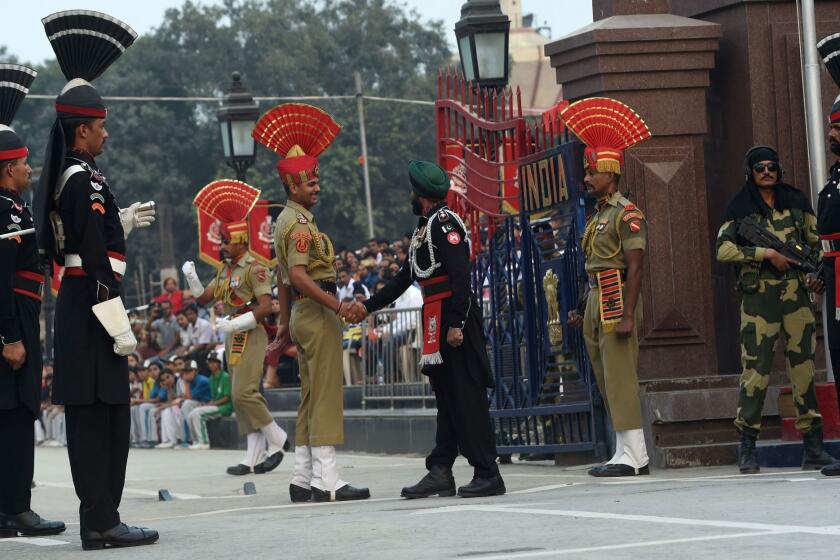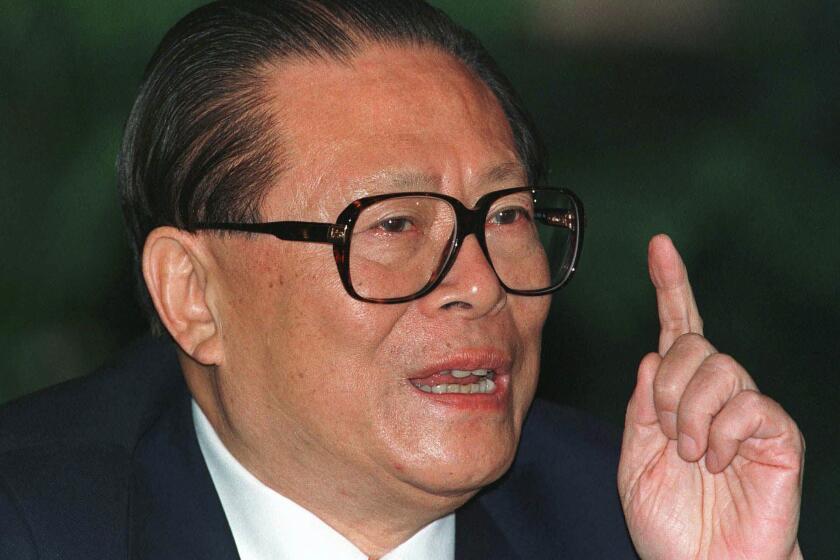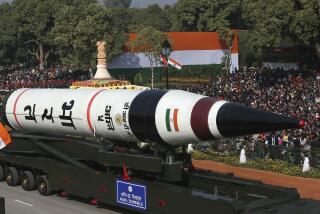India and Pakistan are clashing again. This time it’s about rice
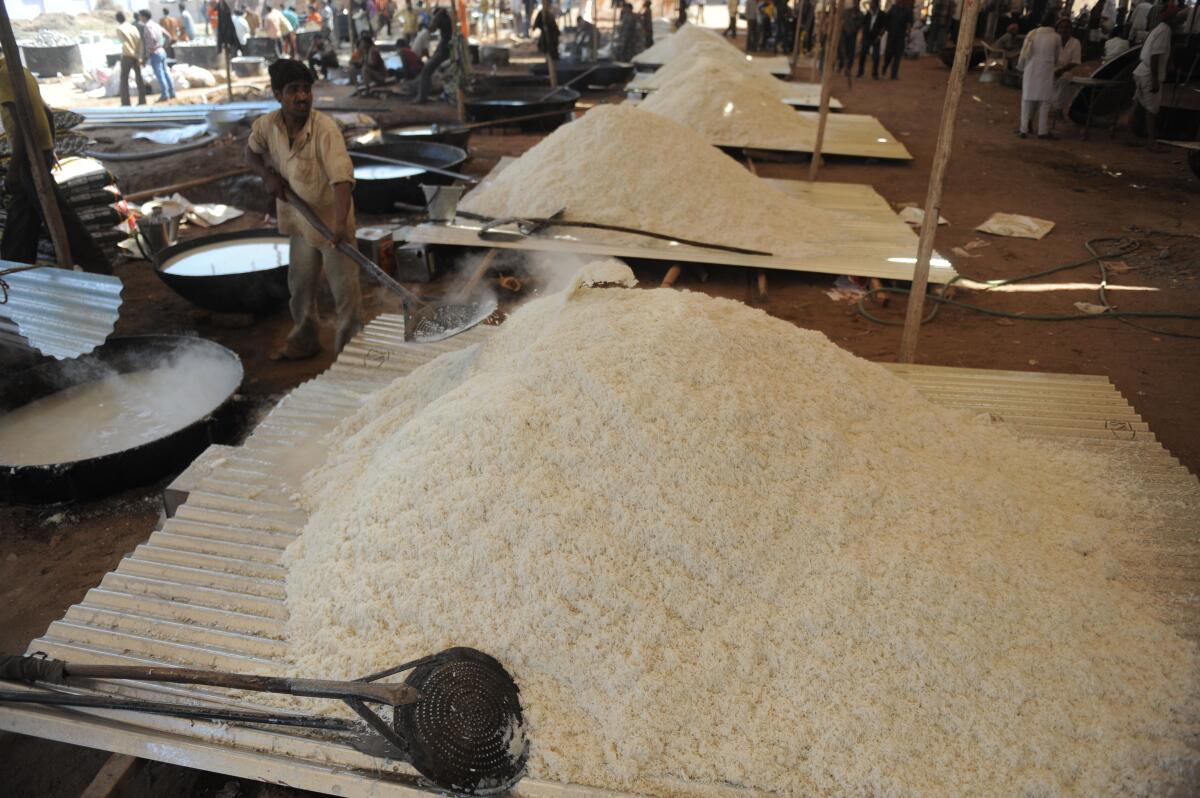
Nuclear-armed neighbors India and Pakistan have a new ingredient in their long-simmering rivalry: basmati rice.
India has asked the European Union to recognize the fragrant, long-grain staple as originating in seven Indian states and territories, which would give its producers exclusive rights to the basmati label in the lucrative European market.
Pakistan rejects India’s claim, arguing that its farmers grow basmati rice too, and is expected to file a formal objection with the EU by its Dec. 10 deadline. The tussle is just one of the many disputes entangling India and Pakistan, which were partitioned upon independence from Britain in 1947 and have fought three wars since.
At stake is not only a major export industry but also bragging rights over a mainstay of South Asian cooking — whether layered with onions and spices in hearty biryanis or fluffed with vegetables in delicate pulaos.
India’s 2018 application, which was published in an EU journal in September, asked the bloc to grant “geographical indication” status to its basmati rice, which would tag it as a product inextricably connected to its place of origin — similar to Champagne from France, potatoes from Idaho or Kalamata olives from Greece. GI labels often serve as a mark of quality and help exporters charge higher prices.
The designation would probably boost Indian basmati exports, which have plunged in Europe due to failure to meet the continent’s tough restrictions on pesticides.
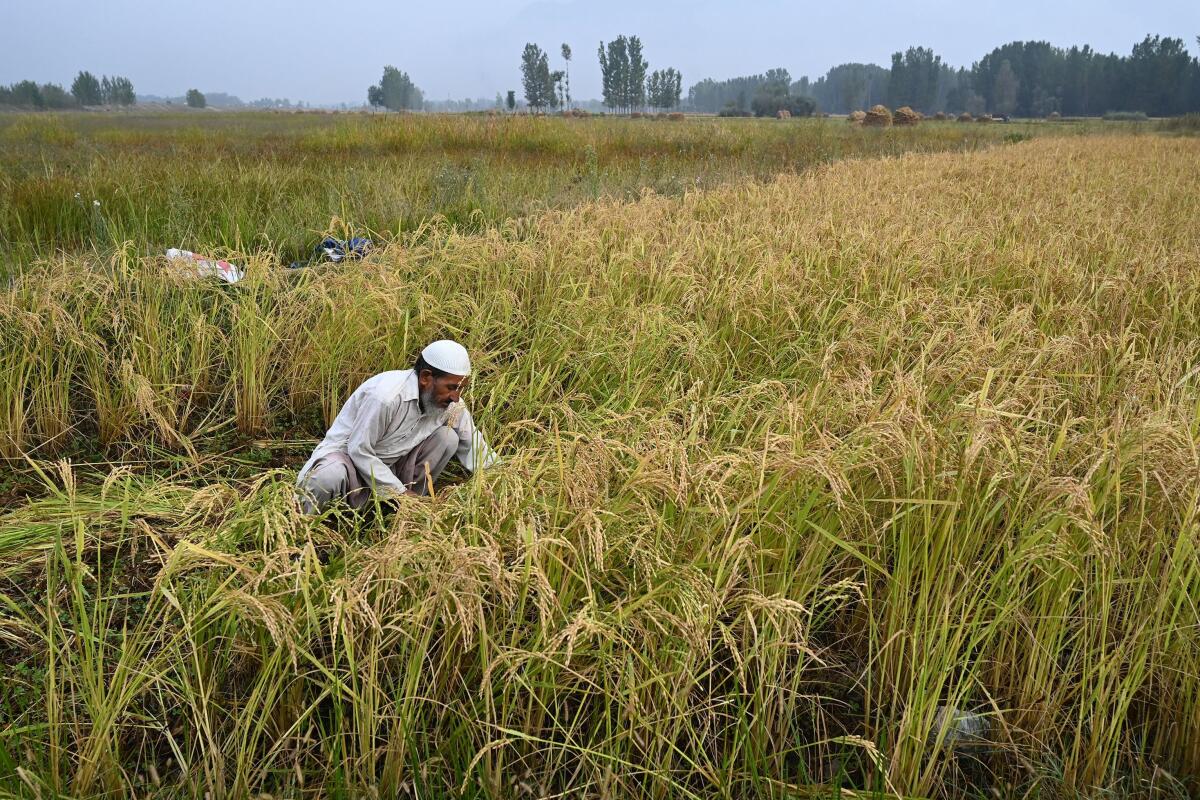
India sold $4.3 billion worth of basmati overseas last year, three-quarters of it to the Middle East. Roughly $180 million was sold to the U.S., according to the All India Rice Exporters Assn.
Although an EU designation would not apply in the American market, it could help lift the profile of basmati as an Indian product in the minds of global consumers.
“If India gets the GI tag, it would make our basmati even more attractive in the international market,” said Rajeev Setia, joint managing director of Chaman Lal Setia, an Indian rice exporter in the northern state of Haryana. “Countries around the world are looking for authenticity.”
The government of Pakistan, whose basmati exports totaled $582 million in 2018-19, second only to India, said last month that it would “vehemently oppose” India’s application.
Although India controls two-thirds of the global basmati market, competition between the nations has grown in recent years as Pakistan increases sales to Europe and Iran, India’s main customer.
Indian suppliers have found it difficult to receive payments from Iran without running afoul of U.S. and international sanctions against the Islamic Republic. News reports indicate that Pakistani traders have been able to set up new barter mechanisms with Iran while Indians have struggled to quickly convert their old cash-based deals to barter.
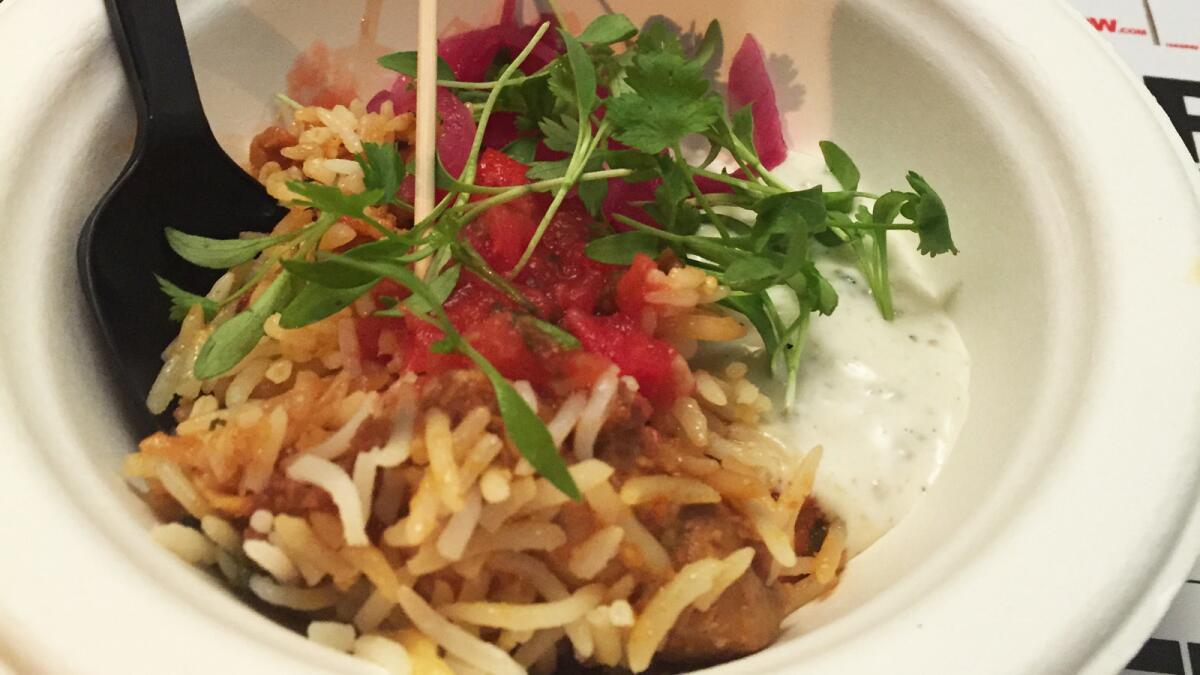
India and Pakistan maintain strained diplomatic relations, each accusing the other of fomenting insurgencies and launching attacks across their disputed border, while sharing countless threads of history, culture, language and cuisine.
Among them is basmati rice. It is grown in the humid plains below the Himalayan foothills, in carbon-rich soil found on both sides of the frontier. One of the main growing regions is the territory long known as Punjab, which now encompasses an Indian state and a Pakistani province of the same name.
Towering soldiers wearing wide fantail hats face off across a pair of metal gates on one of the most heavily militarized borders in the world.
”The cultivation of basmati pre-dates partition,” Setia said. “So a part of Punjab, which is now in Pakistan, also cultivates basmati.”
India’s application does not claim that it is the only country where basmati is grown. The government acknowledged in a separate legal case recently that “it is a well-known fact that basmati rice comes from India and Pakistan.”
More than a decade ago, the two countries discussed jointly applying for geographical status for basmati rice. But the talks fell apart after the 2008 terrorist attacks in Mumbai, which India blamed on Pakistan, and relations have scarcely improved.
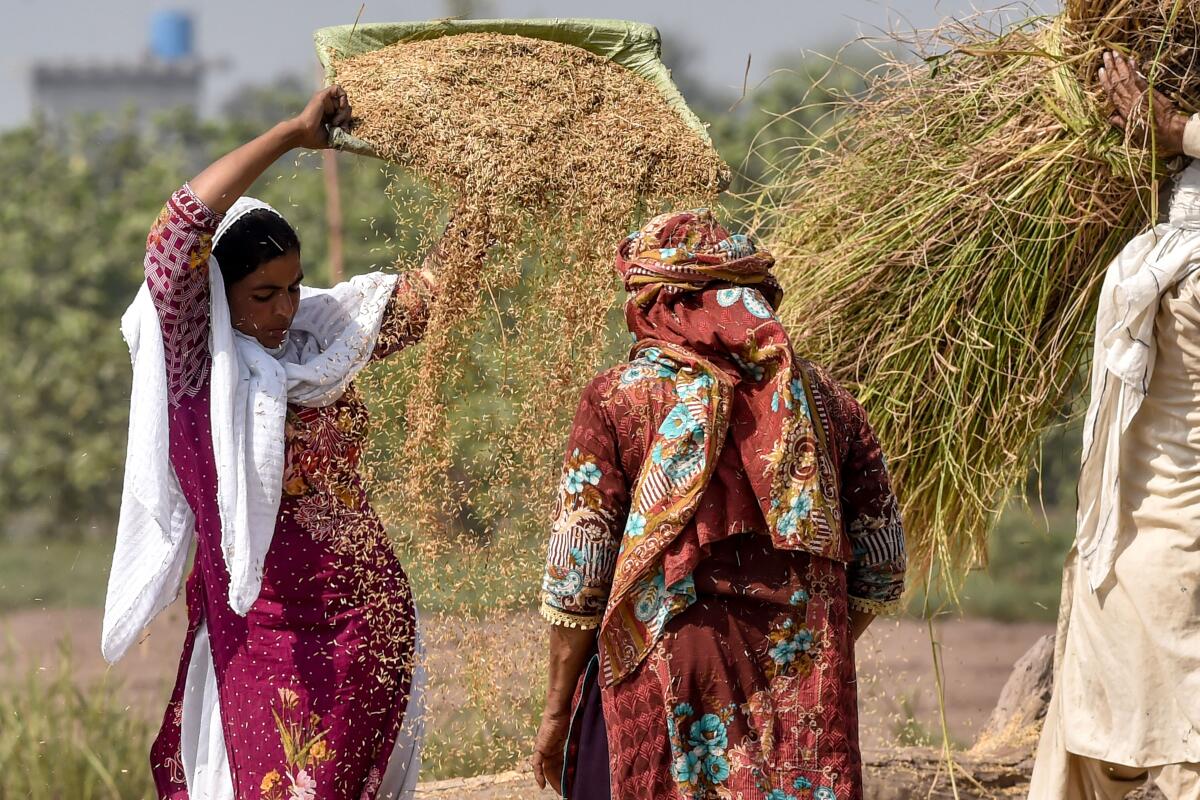
Legal experts say that even without India claiming exclusivity, the EU could decide to grant geographical protection to “Indian basmati,” meaning that Pakistan couldn’t market its product as basmati without its own designation.
“Taking into consideration the significance of basmati for the two, Pakistan would most likely not let basmati GI go without putting up a fight,” according to a commentary on Spicy IP, an Indian blog on intellectual property issues.
More stories from Asia
Although basmati attracts a higher price on the global market than other varieties, Indian farmers are struggling, said Jagdeep Singh Aulakh, 36, who grows basmati on 20 acres of land in Haryana. The Indian government buys non-basmati varieties at fixed prices while leaving farmers to sell basmati on an open market prone to fluctuations, he said.
Over the years, costs of fertilizers, pesticides and diesel have soared while incomes have not kept up. Basmati also grows well in other parts of the region where the water is saltier, he said, but farmers in his area are planting less of the crop despite the government’s intent to make it a part of the nation’s heritage.
“Basmati performs well even when the land is not as fertile,” he said. “It has nothing to do with pride. Farmers will cultivate what is best for their survival.”
Special correspondent Parth M.N. reported from Mumbai and Times staff writer Bengali from Singapore.
More to Read
Start your day right
Sign up for Essential California for news, features and recommendations from the L.A. Times and beyond in your inbox six days a week.
You may occasionally receive promotional content from the Los Angeles Times.
